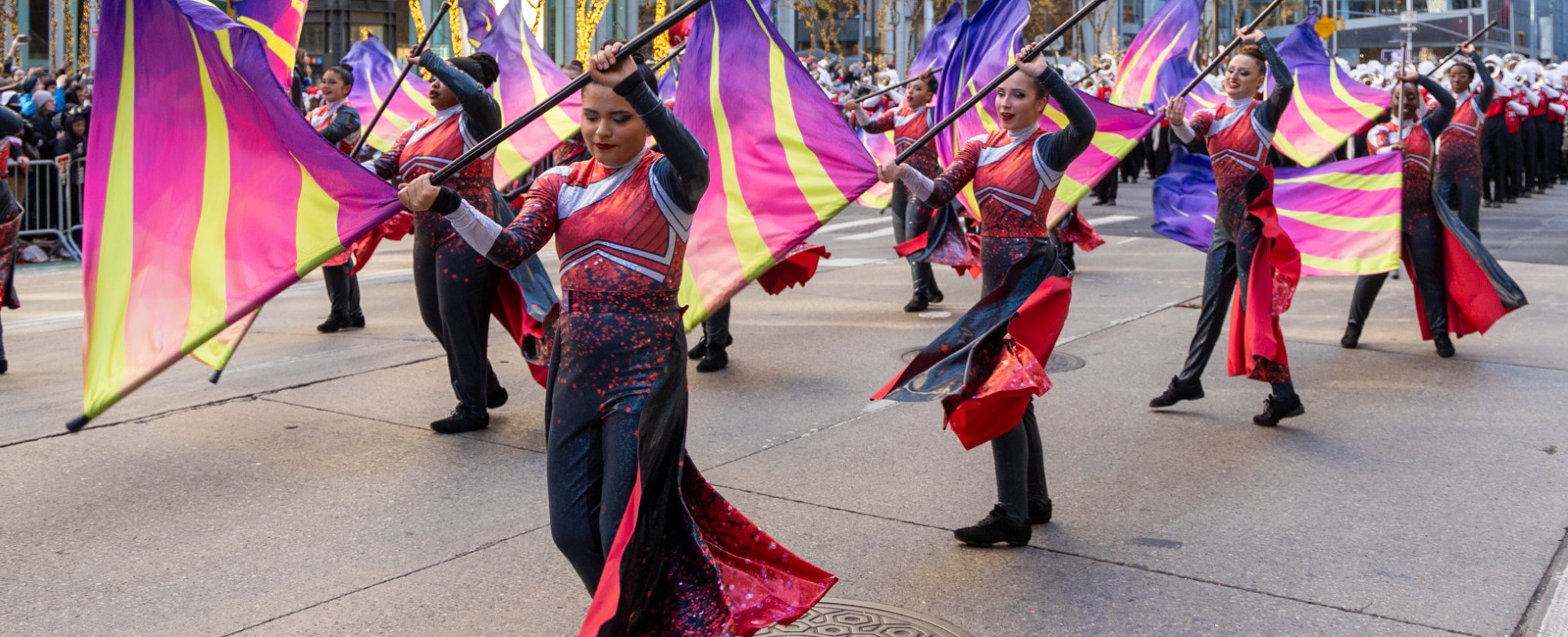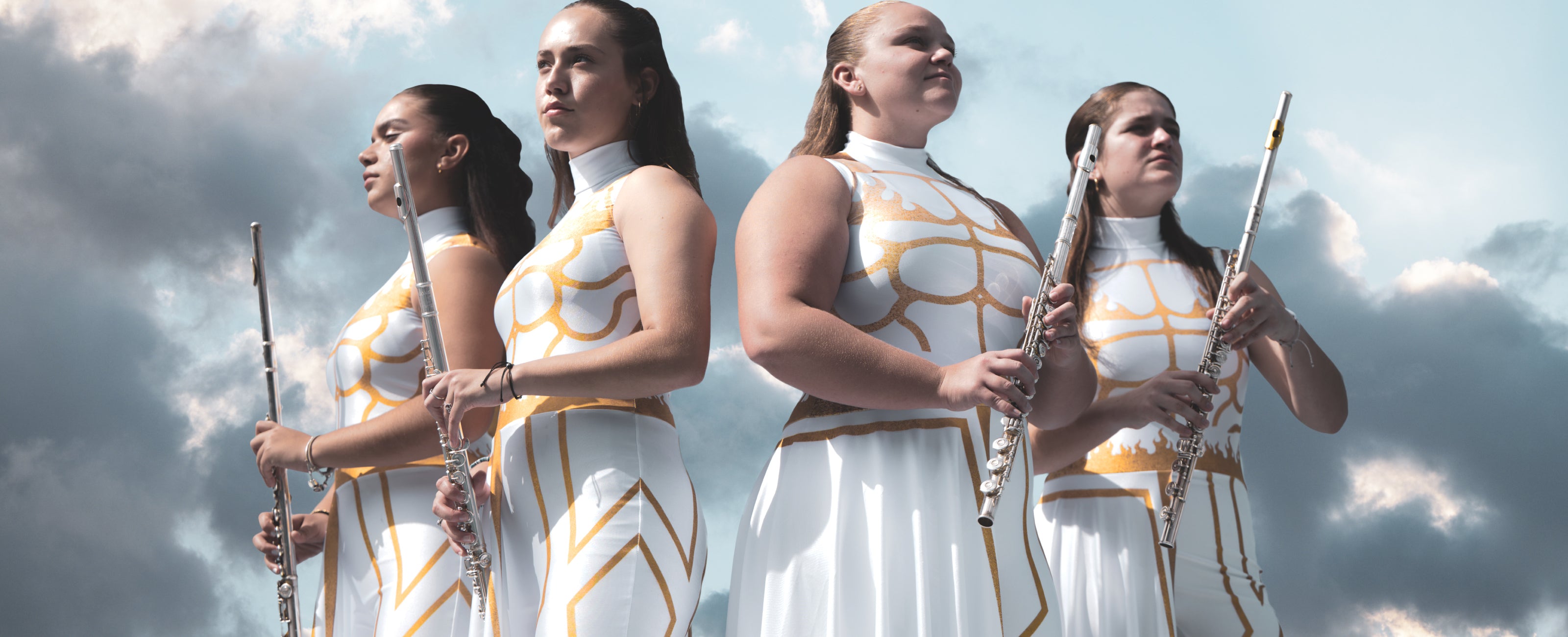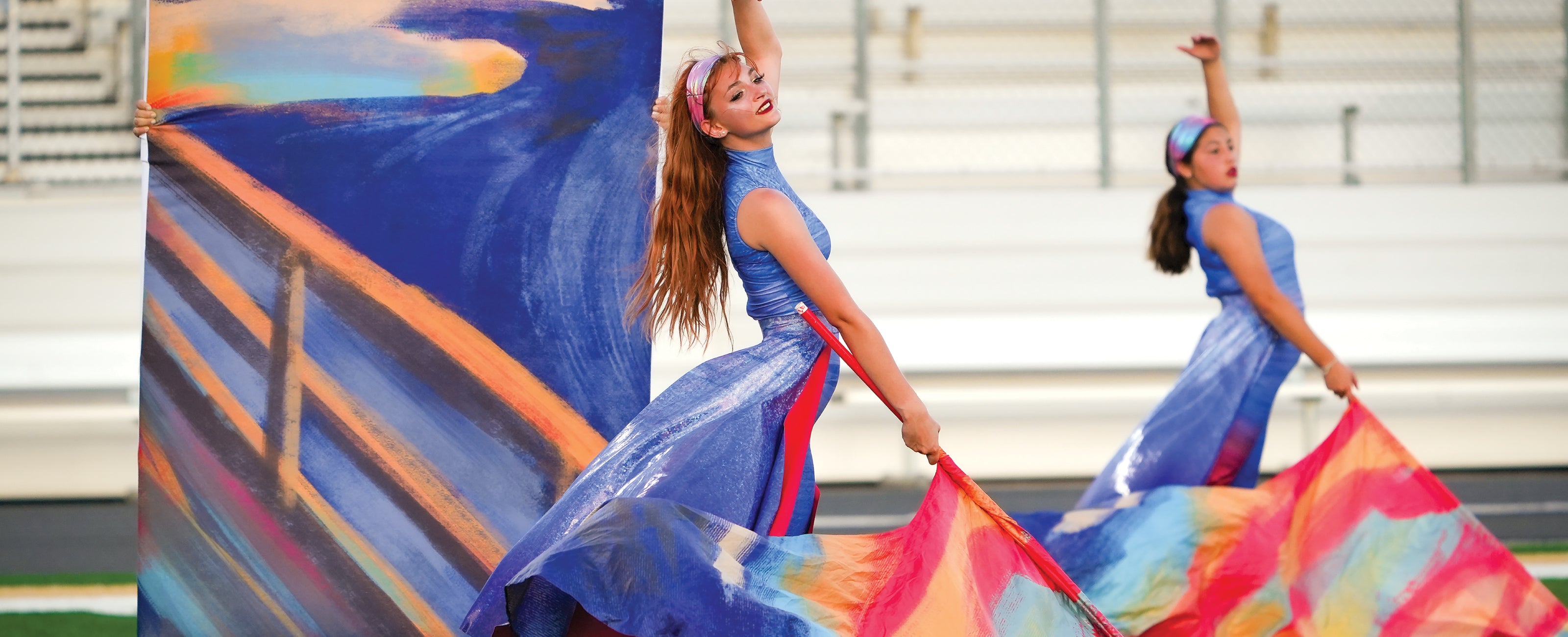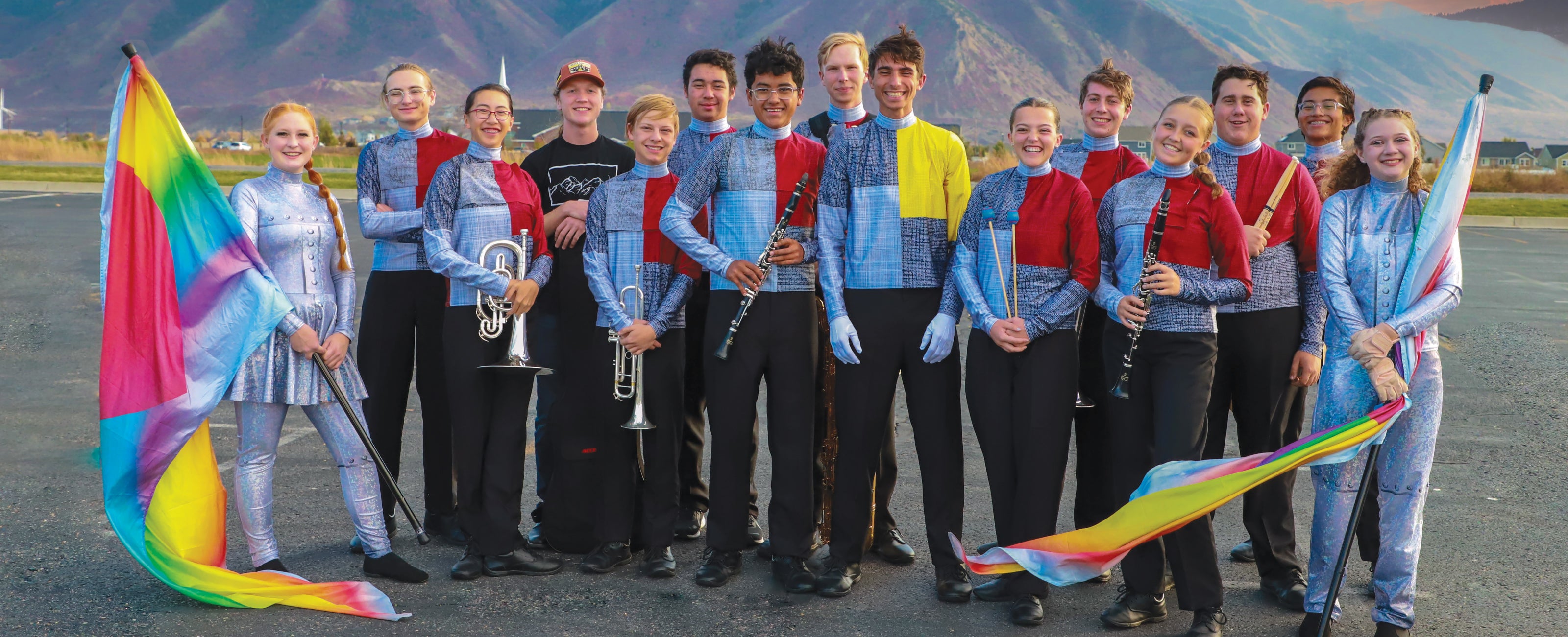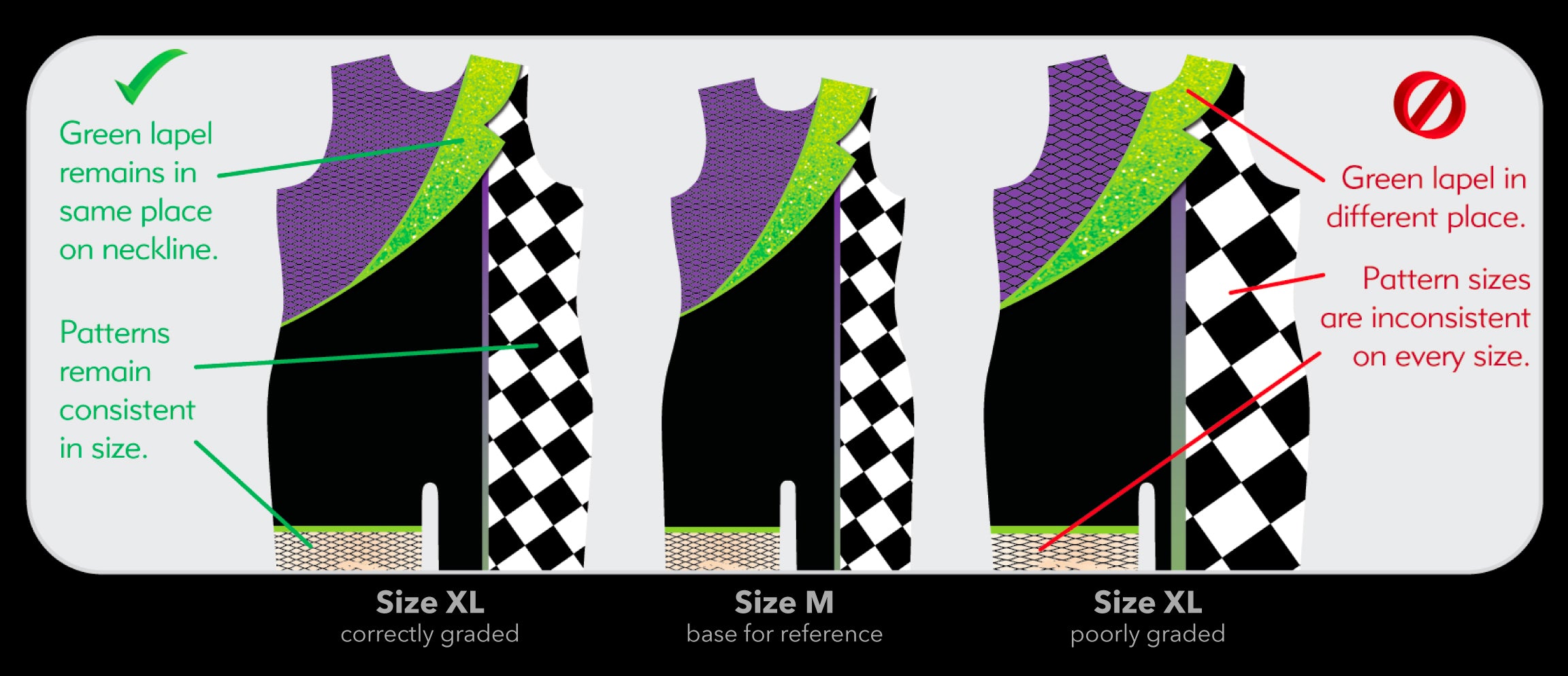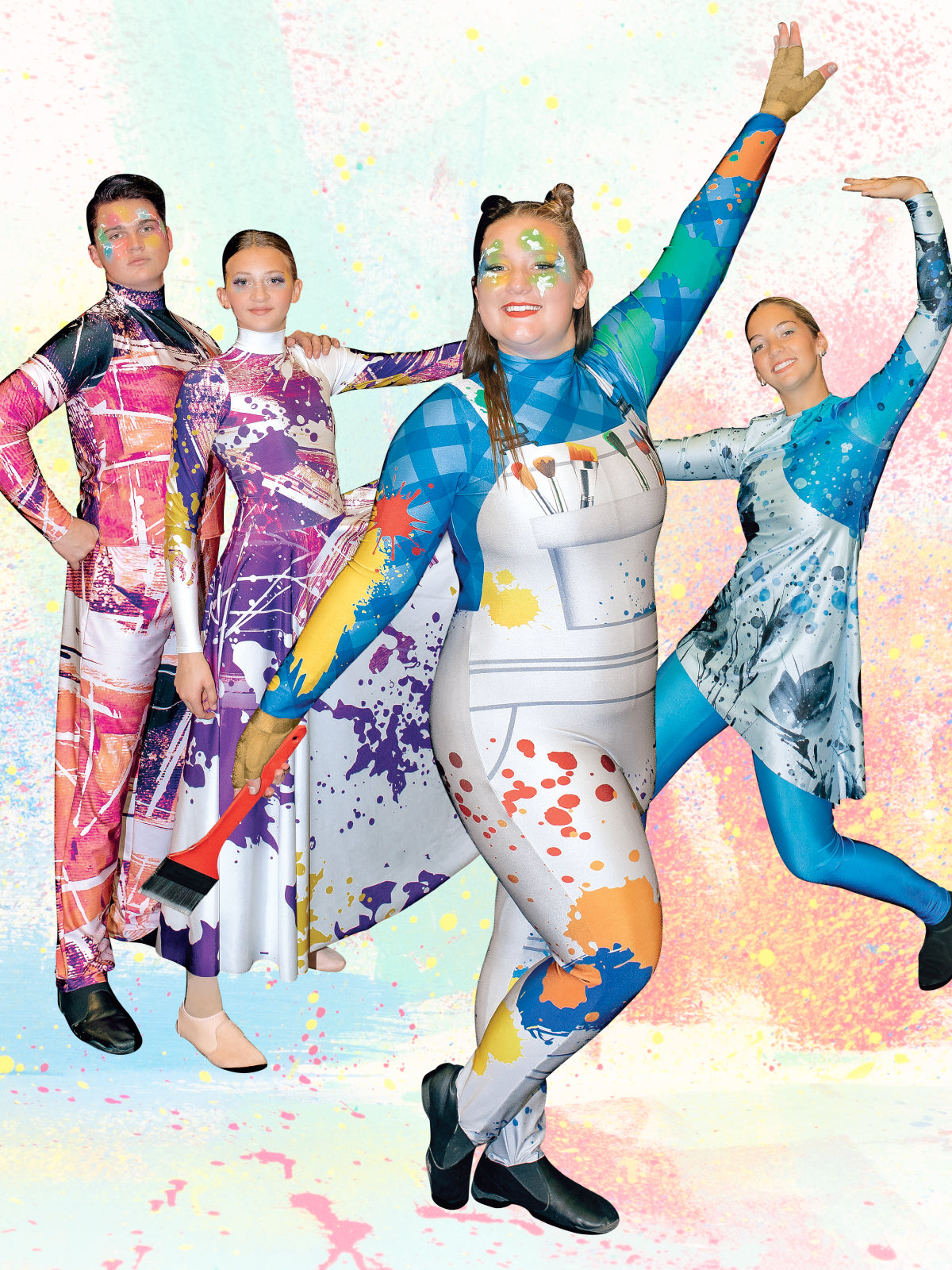
THERE'S MORE TO A GREAT COSTUME THAN JUST LOOKS.
While a lot of products from different companies look similar, not all costumes and uniforms are the same. Many people know someone who tried to save a few dollars but ended up with products that didn’t look right, fell apart after a few performances, or didn’t even show up at all.
We want to equip you with key factors to consider and essential questions to ask potential costume companies.
Experience & Reputation
Anyone can make claims about quality and deadlines, but delivering consistently on those promises is a different story.
How long has the company been in business? What is their reputation? Do larger, established programs trust them? A company with a strong track record would welcome those questions and should be able to provide you numerous references from prominent educational institutions.
Operational Structure
Does the company have a physical operation, or is it a home-based business that outsources all the work?
Company-owned manufacturing allows for a high level of control and predictability, making it far more likely that the finished product will look and perform as intended. Outsourcing design or production limits the company's ability to manage timetables, consistency, and quality.
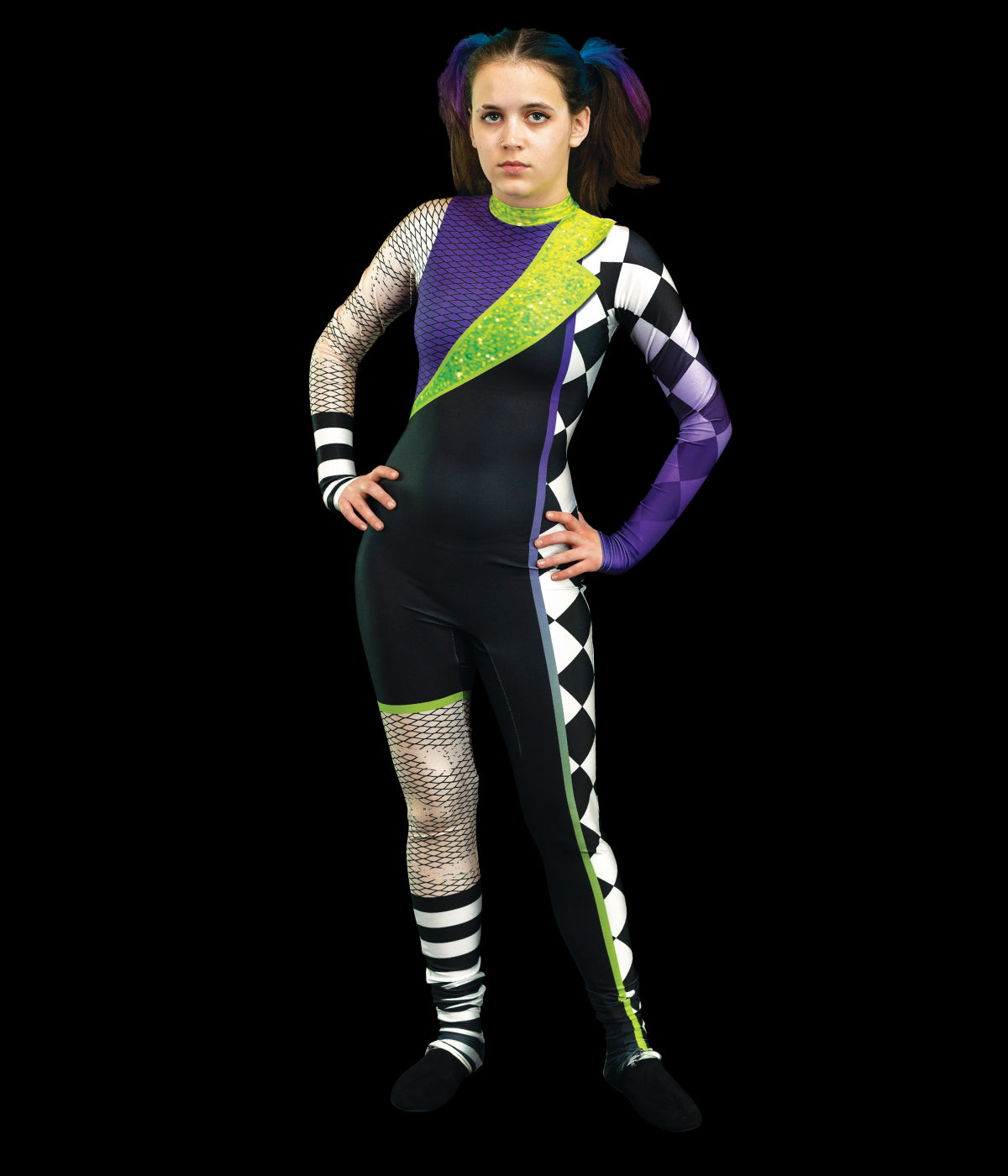
Materials & Sewing
Materials matter. Does the company use high-quality, breathable fabrics, and durable zippers and threads? Have they been field-tested? Low-quality materials can be uncomfortable, restrict movement, and wear out quickly.
It is best to work with a company that has an established, trained, and experienced sewing staff on-site. Remember that independent contractors are just that - independent. This can mean delays and surprises when you receive your order.
Ask about quality inspection - how many quality checks are performed before a product is shipped, and are those checks performed by people different from the ones who did the work?
Sizing & Grading
How does the company adapt the graphic design to different sizes?
If not done properly, it can result in distorted designs on some sizes. As you can see by the example below, grading correctly requires an experienced designer to make judgments and decisions. Ask to see examples of prior work in a full range of sizes so you can see how well the company performs in this area.
Copyright Licensing
Some companies cut corners in licensing images that go onto products. Stock image houses (Shutterstock, Getty, etc) have different types of licenses - using an image on a physical product is more expensive than using it in social media. Ask where the company sources images and what kind of license they buy. If they buy the inexpensive license for online use but print the image on a band top, they're breaking the law, and you're potentially on the hook for copyright violation penalties.
Printing Quality
Companies that do their own printing can control everything.
In contrast, a third-party provider doesn't guarantee when an order will run, what machine it will print on, or that colors will match a previous order. Even companies printing in-house don't always manage color properly. Ask how many printers they have, whether they are all the same model, and how they guarantee consistency between samples, production runs, and reorders. You don't want 12 performers on the field that don't look identical.

